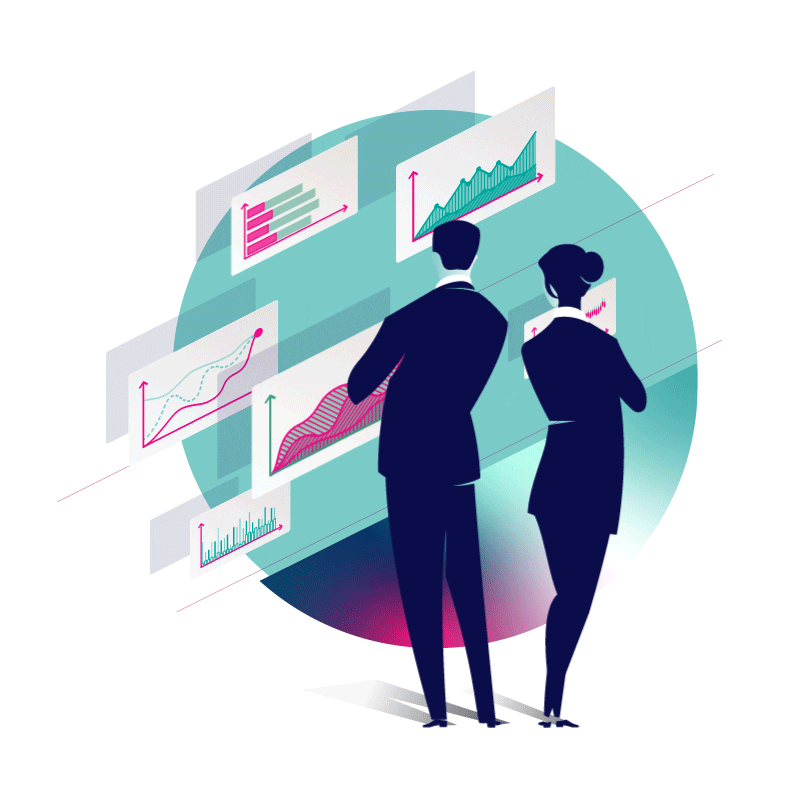Linear regression is one of the most common types of statistical models used in data prediction. It’s easy to use, and it assumes that a straight line can express a relationship between two variables. Logistic is another type of statistical model that also makes predictions.
Still, it does so using a logarithmic function rather than a linear function. This post will explain how these two methods differ and give you some practical applications for them both.
What is Linear Regression?
The linear discriminant analysis uses when predicting one variable based on another. This model assumes that if the slope of the line changes, so does the value of the predictions. It fits a straight line to your statistics using an ordinary least squares method. If you have more than two variables, consider using multivariate instead.
What is Logistic Regression?
Suppose you have an extensive collection of data that includes three different variables, one of which is the outcome you’re trying to predict (label). Using Linear might not make sense if your result isn’t directly related to the other two variables (independent variables or features).
Logistics can easily handle non-linear relationships between the label and the elements. For example, if you’re trying to predict if an email is a spam or not. The probabilities generated by logistics can work even if your features are unrelated to each other.
The Differences between Linear & Logistic Regression
| LINEAR REGRESSION | LOGISTIC REGRESSION |
| It is a simple and robust method based on linear algebra. | It is one of the most well-known machine learning algorithms. |
| It assumes that the relationship between features and the outcome is linear, making it ideal for modeling or analyzing existing relationships in data. | It is for binary classification problems, but you can also use it to solve multi-class classification problems by using an approach called “one versus all.” |
| You can, however, add interactions between variables to create non-linear models such as quadratic functions. | You can not add interactions between variables to create non-linear models. |
| Unlike logistic, linear doesn’t require the outcome to be known beforehand.
|
Logistic gets considered a supervised algorithm because you must provide the predicted (outcome) label beforehand. |
| It is excellent at handling these events because it only cares about the relationship between features and outcomes. | Logistic, on the other hand, is designed for discrete data (categorical or binary). It can’t handle these cases effectively because of how the sigmoid function works.
|
The table summarizes some of the critical differences between linear and logistic. Notice that, like all machine learning models, both algorithms are affected by outliers or data points outside the normal range (tails) that generate significant errors.
Explore and learn with Imarticus Learning
Learn the fundamentals of data analytics and machine learning and the most in-demand data science tools and methods to become job-ready. With Tableau, a student can learn Python, SQL, Data Analytics, Machine Learning, and data visualization. The curriculum includes Capstone Projects, real-world projects, relevant case studies, and mentoring to assist students in becoming a master in their fields.
Some course USP:
- Data science courses in India aid the students in learning job-relevant skills that prepare them for an exciting data scientist career.
- Impress employers & showcase skills with a certification endorsed by India’s most prestigious academic collaborations.
World-Class Academic Professors to learn from through live online sessions and discussions. It will help students understand the 360-degree practical learning implementation with assignments.
Contact us through the live chat support system or schedule a visit to Mumbai, Thane, Pune, Chennai, Bengaluru, Delhi, and Gurgaon training centers.




 Believe it or not, professionals who have undergone a
Believe it or not, professionals who have undergone a  Business analysis is definitely one of the best options for freshers. Luckily for them, there are a number of
Business analysis is definitely one of the best options for freshers. Luckily for them, there are a number of 
